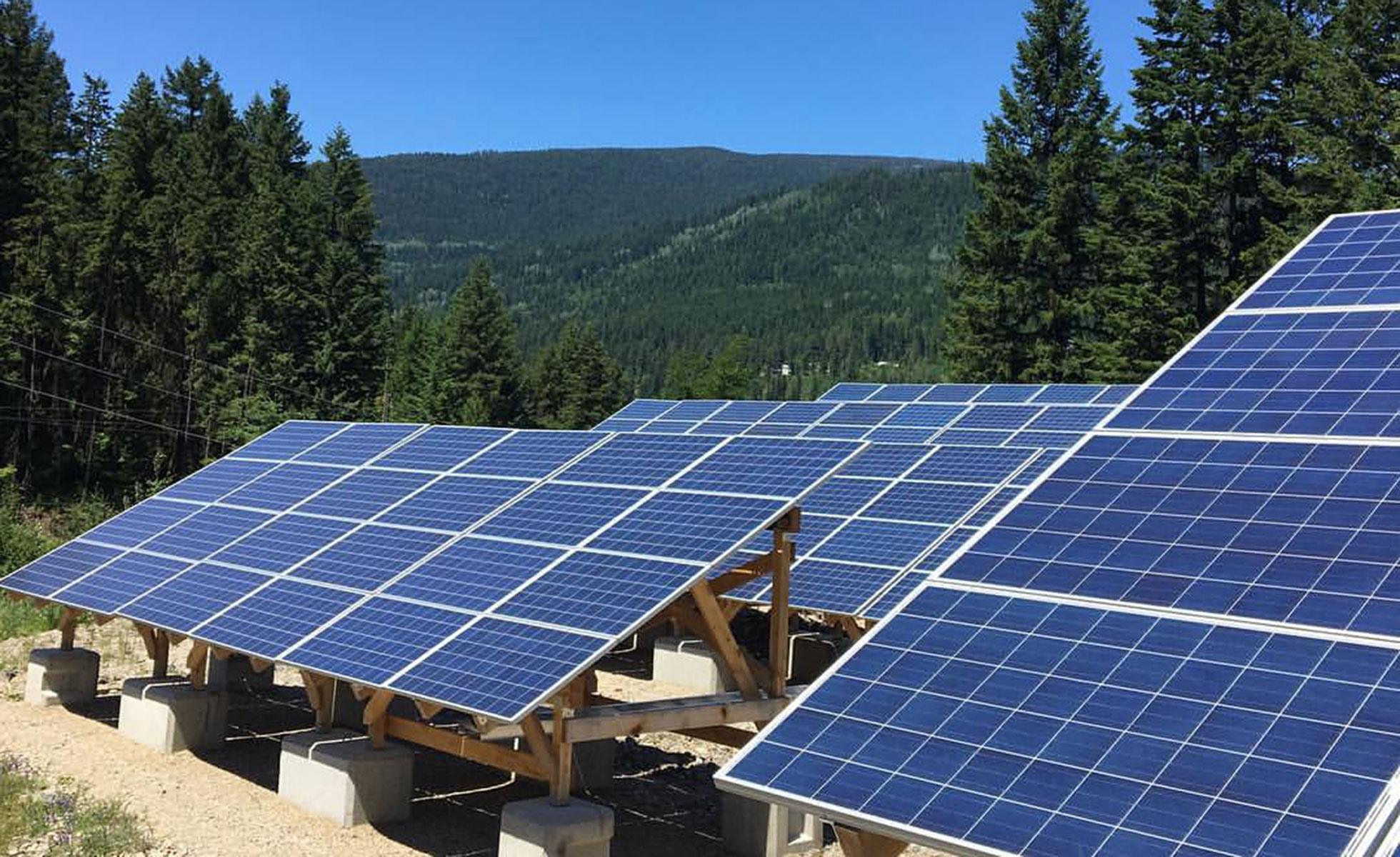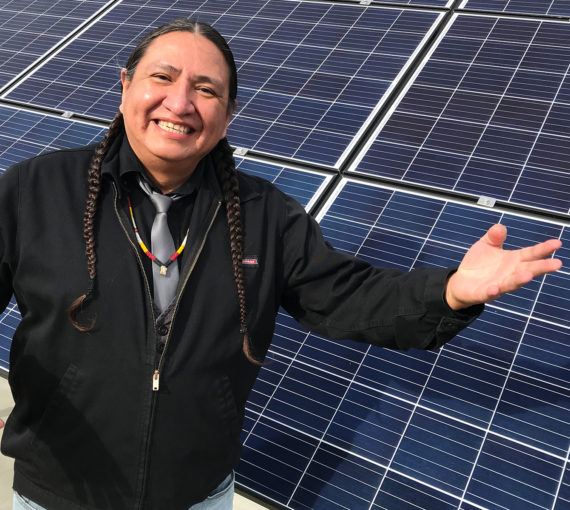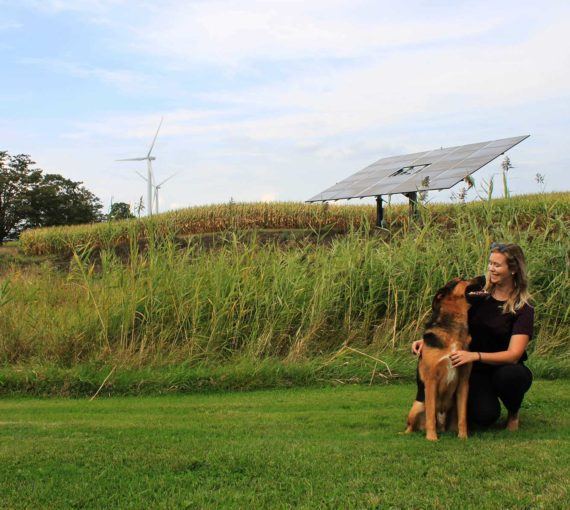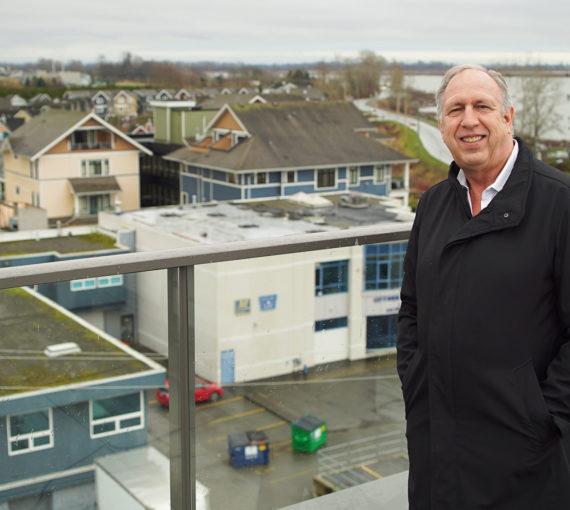
Canada's first "community solar garden" in Nelson, B.C. (Photo: Dave Borins)
“There’s more sunshine in southeastern British Columbia than in Germany or Ontario,” energy-efficiency expert Carmen Proctor says, referring to European and Canadian solar power leaders.
So the late-June launch of this country’s first “community solar garden” in Nelson, B.C. — a city of 10,000 a seven-hour drive east of Vancouver — made good economic sense.
Proctor, who works for Nelson Hydro, tells me the solar garden is a 60-kilowatt system whose 248 photovoltaic panels were purchased from the local power utility by its customers. They paid $923 per panel. In exchange, their annual electricity cost reductions begin at $28 and grow to $50. The payback isn’t huge, but residents can invest in solar without putting arrays on their roofs. (The utility installed the panels on city-owned land, a 20-minute drive from downtown.)
The initiative is the first in Canada to allow utility customers to invest in solar “on a per panel basis and get a credit on their bill,” an approach called “virtual net metering,” Proctor explains.
Like other small-scale renewable projects, Nelson’s is a product of the community. “It’s community owned and the community profits,” Dave Borins of Bullfrog Power says. Bullfrog supported the solar garden with $35,000 in grants.
People called City Hall with their credit card in the middle of the night to buy a panel.
Carmen Proctor
Local churches, homeowners, renters and co-ops purchased the solar panels with enthusiasm. “People called City Hall with their credit card in the middle of the night to buy a panel,” Proctor recalls with a chuckle. “One co-op took the lead and bought 15 panels. The district school board bought 10.” The entire array sold out in four weeks.
Nelson Hydro decided not to ask big business to fund the project. “I didn’t want to do that,” Proctor explains. “I wanted this only to move forward if that’s what the community really wanted.”
The solar garden boosts energy self-sufficiency. Nelson is already strong in this department, receiving about 50 per cent of its power from its own hydro generating station, a facility it operates on the Kootenay River. Now it’s also learning to make electricity from sunbeams. “The project gave our utility a lot of experience with solar PV,” Proctor says. Borins agrees: “It offered Nelson a chance to develop in-house expertise regarding solar energy installation.” Being able to provide more of its own power means the municipality is less vulnerable if its private energy supplier raises prices.
The municipality hopes cities across Canada will embrace the solar garden concept. “Several have contacted us to replicate the project,” Proctor observes. “We’ve inspired places like New Westminster to consider [doing it themselves]. We’re very happy to help other communities.”
Borins believes other provinces could replicate this model one day. Ontario, for example, does not yet allow virtual net metering. “Nelson is providing a model for how other jurisdictions can adopt virtual net metering, which is already working in several U.S. states,” he argues. “I hope more solar projects get built in Canada by learning from Nelson and using virtual net metering to get communities involved in how their energy is generated.”
The payoff, as this small B.C. city learned, is clean power, growth in community spirit and greater self-reliance. On a host of levels, solar power energizes those it touches.
Renewable energy is empowering communities across the country. Charged Up is the story of you — of all of us — on a mission for a cleaner, healthier, charged-up Canada.


